
Sodium is a mineral and an electrolyte, which means it helps your body transmit electrical signals. Sodium is also in many foods and beverages, such as table salt and processed foods. However, too much sodium can be bad for your health. This article explains the Health Benefits and issues of Sodium and what happens when you consume too much sodium also how to reduce your intake of this mineral.
What is Sodium?
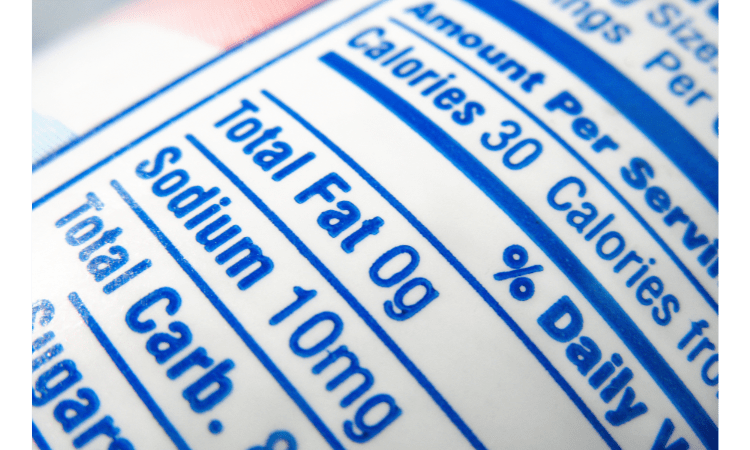
Sodium is a mineral that is essential for the body to function properly. It’s needed for the body to absorb water, maintain blood pressure, and for nerve function.
Sodium is an essential mineral that plays a crucial role in maintaining the health of your blood pressure, muscles, and nerves. It also helps maintain fluid balance in the body.
Sodium can be found in many different types of food. High-sodium foods include processed meats (such as bacon), cheese, canned soups, fast food burgers, and fries. Low-sodium foods include fresh fruits, vegetables, and dairy products.
Sodium is also added to many processed foods such as bread, canned vegetables, and soups, sauces such as soy sauce and ketchup as well as snack foods like chips and pretzels.
The recommended daily amount of sodium has been set at 2,300 mg per day (1 teaspoon or 6 g).
What is the difference between Sodium and Salt?
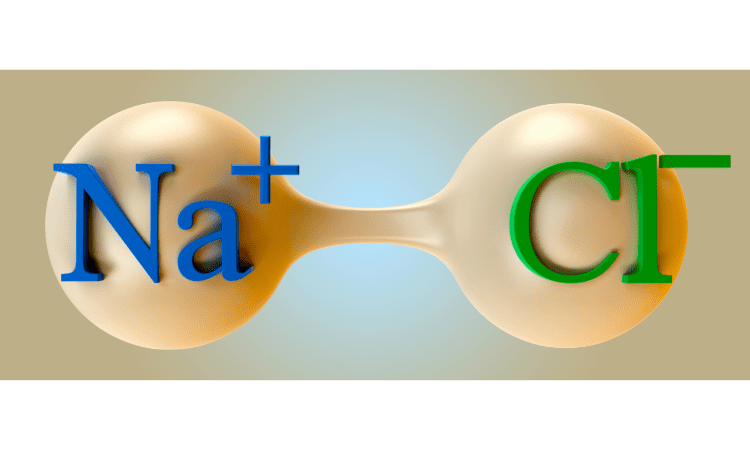
Sodium and salt are both minerals, but they are different in some important ways.
Sodium is an essential mineral that your body needs to function properly. Your body uses it to transmit nerve impulses, contract and relax muscles, transport nutrients into cells, maintain blood pressure and pH levels, and keep your heartbeat regular.
Salt is a mineral used as a flavoring agent in food. It is also sold as table salt or sea salt for use in cooking and baking. Salt can be iodized to increase its nutritional value by adding iodine to prevent goiter—a condition caused by iodine deficiency—in those who don’t get enough iodine from their diet.
Salt is used in cooking because it makes food taste better by bringing out flavors other than just the natural ones present in foods themselves.
What are the sources of sodium?
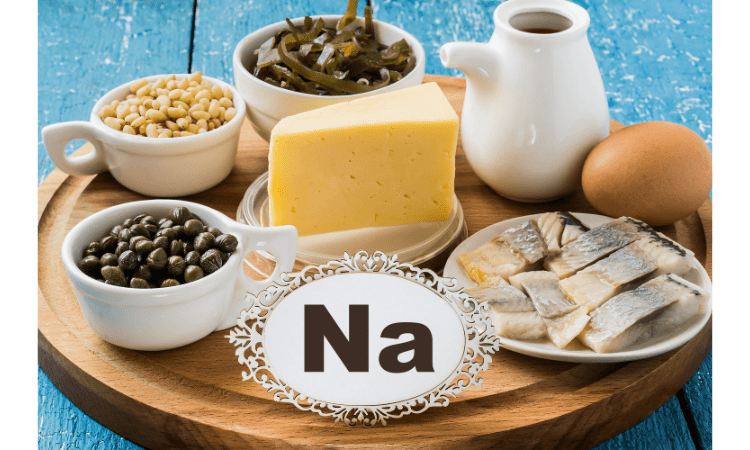
Sodium chloride, or table salt, is the most common source of sodium in our diets. It can be found in many common foods and is often added to processed foods as a preservative and flavoring. Foods that have added salt include:
- Bread
- Pizza
- Meat products (bacon, ham), chicken broth
- Cheese (cheddar) Other dairy products like milk, yogurt, and ice cream. Processed foods like soups and sauces (tomato-based). Condiments such as ketchup, mustard, and relish. Bananas, Celery, and corn tortillas.
Benefits of intake of sodium
Prevents loss of water

Sodium helps to maintain the balance of water in the body. It is essential for keeping your blood pressure normal and preventing dehydration. Sodium also helps to maintain a normal blood volume and concentration of electrolytes in your blood, which are substances that help electrically conduct messages between cells.
Develops the brain

Research shows that the human brain is made up of neurons and glia. Neurons are excitable cells that fire electrical signals, while glial cells provide support to neurons in order to maintain their health. Sodium is required for normal brain development because it helps transmit signals between neurons and helps maintain both cell volume and membrane potential, which are necessary for proper neural transmission.
Research has also shown that sodium deficiency can result in cognitive impairment at all ages of life—including older adults who have been diagnosed with Alzheimer’s disease or other forms of dementia (e4). In addition, studies have linked poor nutrition with an increased risk of developing Parkinson’s disease later in life (e5).
Prevents cramps

Sodium is an essential electrolyte that helps your muscles contract and relaxes. If you have inadequate amounts of sodium in your system, you may experience cramps or spasms.
It’s important to note that some people are more sensitive to the effects of sodium than others. If you find that you struggle with cramps even though you’re getting enough sodium, it’s worth talking to your doctor about adjusting your diet and/or taking a supplement. If your body is low on sodium, it can cause cramps and other symptoms such as muscle weakness and fatigue. The reason for this is that your muscles need sodium to function properly. In fact, if you are dehydrated or become dehydrated during exercise (for example, if you sweat too much), it can cause these symptoms as well.
Regulates fluid
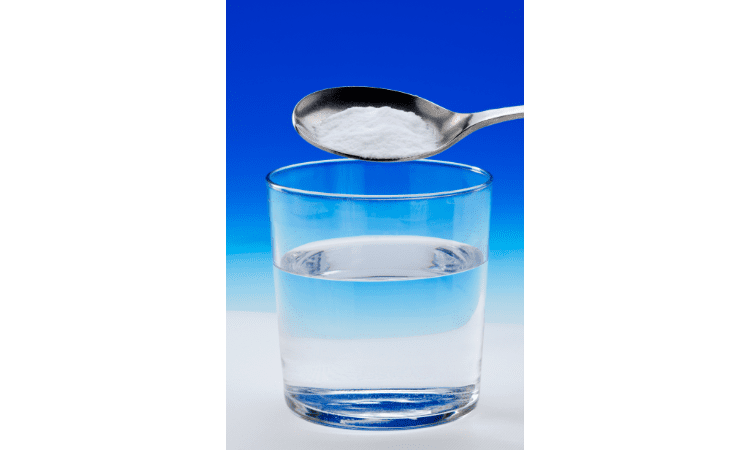
Sodium is one of the major electrolytes in your blood, playing a vital role in regulating fluid balance and electrical activity throughout the body.
When you eat a large amount of sodium, the excess amount needs to be excreted via urine or sweat. If you don’t drink enough water (or if your kidneys cannot properly filter out excess salt), it can lead to dehydration and even death.
Improves the skin

Sodium can help you keep your skin looking the best. Sodium is a natural moisturizer, so it works to draw water from the environment and into your hair and skin. It’s also used in the process of making soap, which means that people who wash with soap have higher sodium levels than those who use no soap at all. The extra moisture on your body keeps oil from collecting on it, which helps prevent acne or dryness and flaking.
Side effects of Sodium
Hypertension

It is a chronic condition that can lead to serious health problems if not treated. Hypertension, or high blood pressure, is a common health problem that affects more than 1 in 3 adults in the United States.
It causes high blood pressure, which can damage your heart and blood vessels over time.
Sodium is a mineral that helps regulate blood pressure. When you eat foods that contain sodium, it increases the amount of water in your body, which increases the amount of fluid in your blood vessels. This makes it easier for your heart to pump blood throughout your body.
However, too much sodium can cause problems with your heart and blood vessels over time because it causes them to swell up and harden. This can lead to hypertension and other serious health problems if not treated right away.
Kidney disease
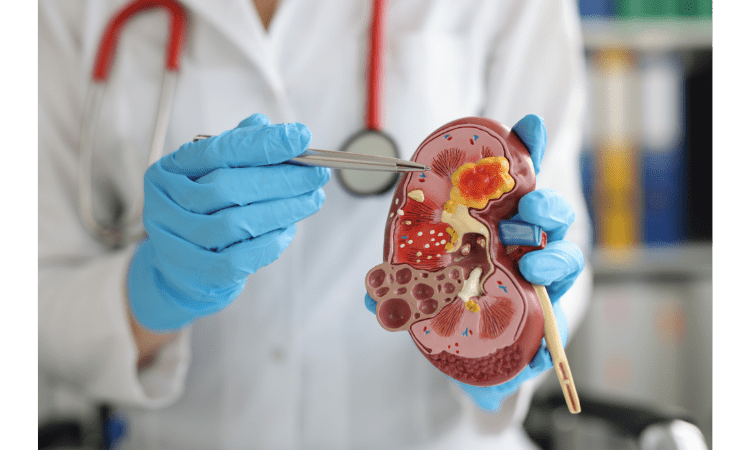
Kidney disease is a condition that affects the kidneys, which may be unable to remove waste products and excess fluids from the body. This disease can cause high blood pressure, swelling, and fluid retention, among other symptoms.
Sodium is an important mineral that keeps our bodies functioning properly. It helps regulate blood volume and blood pressure, as well as maintain the right balance of water in our cells. It is important to keep track of your sodium intake because excess sodium can damage your kidneys.
When you eat too much sodium or drink too much fluid, it can put stress on your kidneys and make it harder for them to function properly. This can lead to kidney failure over time if left untreated.
Cardiovascular disease

Cardiovascular disease is a leading cause of death in the United States and around the world. While diet and lifestyle are important, sodium intake also plays a role in cardiovascular health.
Cardiovascular disease is a condition that affects the heart and blood vessels. It’s caused by a buildup of plaque inside your arteries, which narrows them and makes it harder for blood to flow through. A high-sodium diet can raise blood pressure, which increases the risk of cardiovascular disease.
Stroke

Stroke is a leading cause of death and disability in the United States. It occurs when the blood supply to part of your brain is cut off. The brain tissue in that area begins to die, and if it is not regained within minutes or hours, it may be permanently damaged or destroyed. Stroke risk factors include high blood pressure, high cholesterol, smoking, obesity, diabetes, family history of stroke, physical inactivity, and poor eating habits.
Most strokes are caused by a blocked artery that supplies blood to the brain (this is called an ischemic stroke). A clot from an artery wall breaks off and travels through your bloodstream until it lodges in an artery supplying blood to your brain. This causes a stroke because it cuts off the flow of oxygen-rich blood to part of your brain.
Also Read: Zinc Overdose Signs effect and treatment
Conclusion
In conclusion, sodium is an essential mineral that plays a crucial role in maintaining health. It is found in many foods and also added to some. This means that it can be difficult for people to avoid consuming too much sodium. However, there are steps you can take to limit your intake of this mineral so as not to increase your risk of developing kidney disease or cardiovascular disease later on in life.











